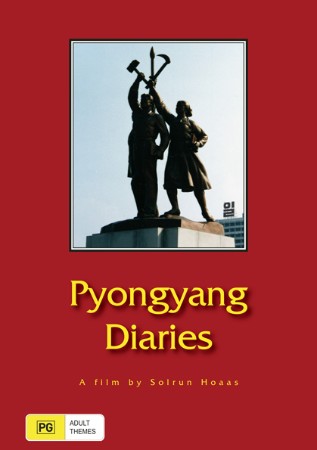
Pyongyang Diaries 1998
Distributed by First Run/Icarus Films, 32 Court St., 21st Floor, Brooklyn, NY 11201; 800-876-1710
Produced by Solrun Hoaas
Directed by Solrun Hoass
VHS, color, 52 min.
Adult
Asian Studies, History
Date Entered: 11/09/2018
Reviewed by Gerald Notaro, University Librarian, Nelson Poynter Memorial Library, University of South Florida, St. PetersburgPyongyang is the capital of the Democratic People's Republic of Korea, more commonly, and simply, known in the West as North Korea. Pyongyang Diaries is Australian director Solrun Hoaas' documentary of her travels and observations there. Her film and narration styles are straightforward and somber, a definite asset when documenting such a serious and sensitive history. Her visit begins with the death of revered and worshiped "Great Leader" Kim II Sung. While not well known as other socialist giants as Mao, Stalin, or Castro, his image and legacy is everywhere in Pyongyang, including the songs of the schoolchildren. Signs of a cult culture are everywhere in Pyongyang. The underground bunkers where Sung met with communist leaders protected from American bombs is now sacred ground. Along with a grand library and university, usually signs of open society, is famine and black marketeering, signs of hunger and shortages. People scavenge the park foliage and fish from every waterside. Though the film and theatre students claim freedom, their only artistic choice is to please the party. A popular film director asserts Sung's son, and present ruler, Jong exerts no influence. "He states his view and we fix it." Much like the Cuba and the Cubans-In-Exile, the two Koreas want unification, but on their own terms. Only the collapse of one or the other seems to be able to achieve such. Pyongyang Diaries documents a socialist state in decline. Recommended for all libraries.